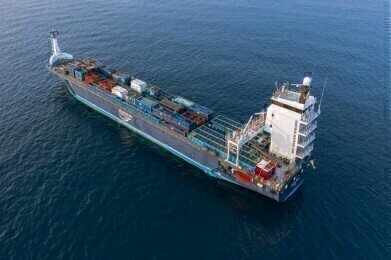News
The Dounreay Dilemma – Disposing of Scotland’s Toxic Leftovers
Nov 26 2014
In the 1950s Dounreay was at the centre of Britain’s nuclear energy ambitions. Then, during the 1990s it served as a reprocessing hub for nuclear material sent from power plants and research centres in Australia, Germany, Belgium and beyond. Today, Scotland faces the feat of demolishing the iconic nuclear power station, a complex task which is set to cost around £1.6 billion.
What happens to Dounreay’s noxious leftovers?
One of the major issues faced by planners is the fact that Dounreay is still home to tonnes upon tonnes of radioactive waste, nuclear fuel and contaminated material. It may seem bizarre, but the current solution involves the toxic material being ferried back to its country of origin. It’s a huge job and will see over 150 tonnes of waste shipped back to Belgium shores over the next four years. This waste was a by-product of 240 spent fuel elements which were reprocessed at Belgium's BR2 research reactor, a plant which produces isotopes for the medicine and industry sectors. During the reprocessing phase a huge 22,680 litres of liquid waste was produced.
Recently, a potential solution to nuclear waste has arisen in the form of a tiny bacteria, so small that it is invisible to the naked eye. The microscopic bacteria, known as Geobacter sulfurreducens, has been found to be able to neutralise uranium and other radioactive elements, whilst simultaneously generating electricity. Early studies are encouraging and indicate a breakthrough in the field of bioremediation. We explore further in this story: Can Bioremediation Clean-Up Nuclear Waste?
At-sea disaster
A Danish shipping company has been contracted to transport the waste back to Belgium over 21 transits. Though after 19 successful shipments plans hit a hurdle when Turkish-built ship MV Parida caught fire and began drifting in the Moray Firth, resulting in the evacuation of a nearby oil rig. Despite the scare Dounreay Site Restoration Limited (DSRL) maintains that no radioactivity was released. This may be the case however it does highlight the serious risks involved with transporting toxic waste hundreds of miles across the ocean.
A DSRL representative explained, "In almost 60 years of nuclear transports from the site, there has never been a release of radioactivity. We are determined to keep that record intact."
Dounreay gets ready for decommissioning
As well as shipping out toxic material, the Dounreay plant is also undergoing some significant changes in the lead up to its decommission date. The Dounreay Fast Reactor (DFR) and the Prototype Fast Reactor (PFR) are both being prepared for dismantling while some new additions are also being rolled out in order to safely store low-level radioactive material. This includes the construction of two colossal vaults at a cost of £20 million. Each will require hundreds of tonnes of steel and be capable of holding up to 450 double decker buses. After the low-level radioactive material has been placed in the vaults they will remain off limits for 300 years.
It’s all got to go!
While Dounreay will house low-level radioactive material, authorities have decided that the cost of handling higher risk waste is simply too expensive. Breeder is one such material which will be transported off site. Dounreay’s stockpile comes in the form of uranium metal cylinders measuring 35mm in diameter and 150mm in length. As part of the decommissioning plan 44 tonnes of breeder will be transported to Cumbria on a train accompanied by an armed guard escort. While the project cost a huge £60 million the NDA maintained that it was still a cheaper option than processing the material at Dounreay.
With a decommissioning date of 2022-25 the world can only wait and see what other quandaries could be in store for Dounreay over the next decade.
Digital Edition
Lab Asia Dec 2025
December 2025
Chromatography Articles- Cutting-edge sample preparation tools help laboratories to stay ahead of the curveMass Spectrometry & Spectroscopy Articles- Unlocking the complexity of metabolomics: Pushi...
View all digital editions
Events
Jan 21 2026 Tokyo, Japan
Jan 28 2026 Tokyo, Japan
Jan 29 2026 New Delhi, India
Feb 07 2026 Boston, MA, USA
Asia Pharma Expo/Asia Lab Expo
Feb 12 2026 Dhaka, Bangladesh



















